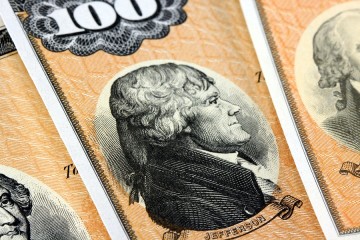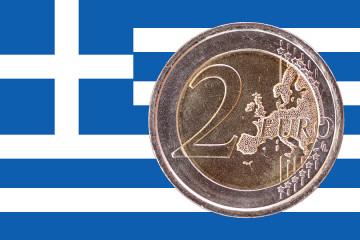Emerging Stocks Decline With Currencies as Fed Euphoria Eases

©2015 Bloomberg News
NV1S346K50YG
(Bloomberg) — Emerging-market stocks fell from a one-month high and currencies weakened as the euphoria surrounding the Federal Reserve’s decision to hold off on raising U.S. interest rates was replaced by concern that global economic growth is slowing.
Lukoil PJSC paced losses among Russian oil producers on speculation the government may raise taxes on crude to plug a budget shortfall. The Micex Index fell 0.7 percent. Brazilian stocks slid for a third day on speculation corporate earnings will falter after analysts cut the outlook for the economy for a 10th consecutive week. Stock gauges in South Korea and Malaysia each slid at least 1.6 percent. Stocks gained in Shanghai as President Xi Jinping headed to the U.S. for his first state visit.
The MSCI Emerging Markets Index tumbled 1.7 percent to 815.63. A Bloomberg gauge of 20 developing-nation currencies slid 0.6 percent to a one-week low. Fed Chair Janet Yellen highlighted China’s slowing economy and financial market turmoil when the U.S. monetary authority left borrowing costs near zero last week. Three Fed policy makers over the weekend separately argued that an increase is still warranted this year. A preliminary Chinese manufacturing report Wednesday may signal a contraction, according to estimates compiled by Bloomberg.
“Dislike of uncertainty is overriding a like of low rates,” Tony Hann, a London-based money manager at Blackfriars Asset Management, which oversees about $350 million, said by e-mail. “Emerging markets will trade nervously as investors await the Fed’s next decision and further macro news from China.”
Price Swings
Historical 30-day volatility in the MSCI emerging-market stock index, a measure of price swings during the period, jumped to 27 percent, the highest level since late 2011. The gauge has fallen 15 percent this year and trades at 10.8 times projected 12-month earnings, a 29 percent discount to the MSCI World Index, according to data compiled by Bloomberg. The premium investors demand to own emerging-market debt over U.S. Treasuries narrowed four basis points to 380 basis points, according to JPMorgan Chase & Co. indexes.
All 10 industry groups in the emerging-stocks measure fell, led by 2.4 percent slump in energy stocks. Lukoil dropped 3 percent as the Micex fell for a third day. Officials have started talks with oil companies about changing at least an extraction-tax formula, a person with knowledge of the discussions said Sept. 18.
Crude Rebound
Brent crude advanced for the first time in three days, helping the ruble add 0.5 percent versus the dollar after weakening for two days in a row. Russia, reliant on oil and gas for about half its government budget revenue, is struggling with its first recession in six years after crude prices shrank by 50 percent in 12 months and sanctions over its actions in Ukraine restricted borrowing.
The Ibovespa slipped 1.4 percent in Sao Paulo. Lender’s Itau Unibanco Holding SA and Banco Bradesco SA contributed the most the Brazilian benchmark’s decline. Economists covering Brazil forecast the country’s gross domestic product will contract 2.7 percent this year and 0.8 percent in 2016, according do a weekly survey by the central bank published Monday.
The benchmark ASE Index slid 0.6 percent in Athens. Greek assets slumped after Alexis Tsipras and his party Syriza won the country’s second election in eight months. Tsipras had stepped down on Aug. 20, seeking a fresh mandate after causing political turmoil before finally signing a third aid agreement with Greece’s creditors.
The Shanghai Composite Index rose 1.9 percent. During Xi’s visit from Sept. 22-25, China and the U.S. are expected to reach agreements on trade, energy, climate, finance, aviation, defense and infrastructure construction, Foreign Minister Wang Yi said. Hong Kong’s Hang Seng China Enterprises Index slid 1.3 percent.
Officials will study the feasibility of setting up a London-Shanghai stock trading link and China’s central bank will issue short-term yuan-denominated bonds in the U.K. for the first time, U.K. Chancellor George Osborne said at a briefing in Beijing Monday.
–With assistance from Stephen Bierman in Moscow and Kyoungwha Kim in Hong Kong.
To contact the reporters on this story: Anuchit Nguyen in Bangkok at anguyen@bloomberg.net; Maria Levitov in London at mlevitov@bloomberg.net To contact the editors responsible for this story: Daliah Merzaban at dmerzaban@bloomberg.net Zahra Hankir, Richard Richtmyer







No Comment